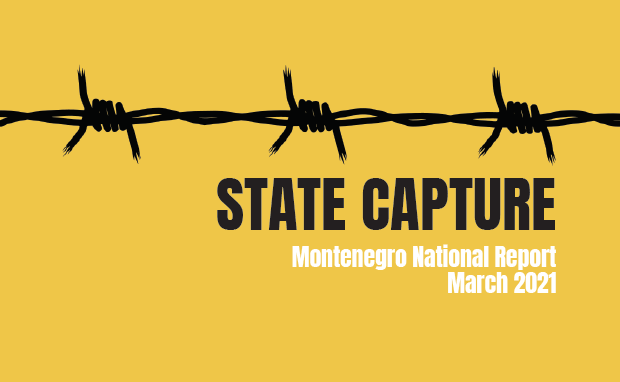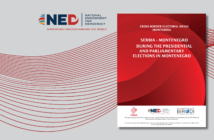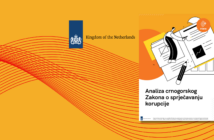Impunity for corruption, and the use of tailor-made laws as vehicles for achieving and maintaining state capture, are common in Montenegro. This report profiles these problems and make recommendation for their resolving. Supported by the European Union (EU), Transparency International and its partners from Albania, Bosnia and Herzegovina, Kosovo, Montenegro, North Macedonia, Serbia and Turkey are seeking to improve governance, transparency and accountability of the judiciary and democratic law-making in these countries. To do so, we have researched how state capture is achieved and sustained, highlighting shortcomings of the criminal justice system when handling grand corruption cases, and exposing tailormade laws created to protect the private interests of a few.

After decades of undisturbed political domination by the Democratic Party of Socialists (DPS), Montenegro is facing serious problems with poor implementation of key reforms related to the rule of law. This is taking the country far from its desired path of joining the EU. It is caused primarily by the efforts of the ruling political elite to retain the status quo and protect their dominance and privileges. This report explores the main levers used to establish and maintain this state capture in Montenegro.
Its analysis shows that courts tend to give milder penalties for high-level corruption than for administrative corruption. They also have a more lenient attitude towards high-level corruption in the public sector, which causes multi-million-euro losses in the state budget, than to corruption in the private sector, where damages are less harmful to state finances.
The corruption cases analysed show that high-level public officials receive more favourable treatment before the courts than other accused persons. In the majority of cases, the courts assess the same circumstances differently, depending on the accused. This works heavily in favour of public officials, who even receive suspended sentences when there is no legal basis.
Key shortcomings in the judicial system are also related to a lack of transparency and free access to information, a weak and non-functional liability system, and the overwhelming political influence of the ruling elite. This contributes to an overall situation where the judiciary today represents one of the main levers of state capture in Montenegro.
So-called “tailor-made laws”, used to maintain political dominance of the ruling elite in Montenegro for years, are another important aspect of state capture. The report analyses different typologies of law, from legal amendments to promote private interests, to the adoption of new laws, introducing new legal forms into the country’s legislation.
Most such laws and policies are adopted without the proper public consultation that could provide accurate assessment of their worth. Parliament has frequently been required to discuss proposed laws in shortened procedures, with a timeframe prohibiting quality discussion – for example, the last parliamentary session before the summer or New Year recess. Such laws have been used to legalise previously illegal practices or pre-existing monopolies, or often to provide ground for the creation of future monopolies and benefits for entities close to the ruling elite.
Such tailor-made laws relate predominantly to management of Montenegro’s natural resources, such as energy and land, but they also affect public procurement, spatial planning and other state concessions.
These are all sectors able to generate significant benefits for privileged individuals and entities with close political ties.
The report makes concrete recommendations for reducing opportunities for the judiciary and legislative processes to become key drivers for achieving and maintaining state capture in Montenegro.
These include significant changes in judicial processing of grand corruption, such as more effective checks and balances, greater transparency and better access to information on judicial work. To prevent tailor-made legislation, law-making should include the widest possible public consultation processes and comprehensive parliamentary scrutiny during the adoption process.
Complete publication download HERE (PDF)



